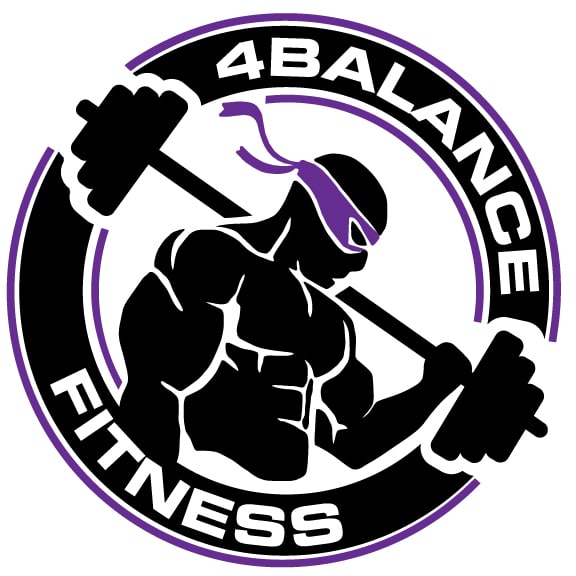“Understanding how to balance your diet to give you the right amount of sanity – while not letting your hunger go wild – is the key to feeling in control of your diet.”
Have you ever wondered what really happens to the calories you consume? Today, we’re diving into the fascinating world of metabolic chambers and exploring the science behind calorie consumption and expenditure. By the end of this episode, you’ll have a clearer understanding of how to make your calories work for you and your health goals.
What Is A Calorie?
Let’s start with the basics: what exactly is a calorie? Simply put, a calorie is a unit of energy. Scientists use a process called bomb calorimetry to determine the number of calories in a given food. But here’s the interesting part – while counting calories is important, not all calories are metabolized equally by our bodies. Protein, carbohydrates, fat, and alcohol each have different caloric values and effects on our metabolism. This means that not all calories are created equal, and the quality of our diet plays a crucial role in how our bodies use and store energy.

Understanding Your Metabolism
Metabolism is the process by which our bodies convert food into energy. Our basal metabolic rate (BMR) – the minimum amount of energy needed for basic body functions – makes up about 60-75% of the calories we burn each day. The remaining calories are used for physical activity, digestion, and other bodily processes. Our metabolism is influenced by a variety of factors including age, gender, muscle mass, and hormone levels. While we can’t control all of these factors, there are ways to boost our metabolism through exercise and building muscle mass.
The Role Of Macros In Balancing Your Diet
Macronutrients, or “macros” for short, are the three main sources of calories in our diet: carbohydrates, protein, and fat. Each of these macronutrients has a specific role in our bodies and plays a crucial part in maintaining overall health. Carbohydrates provide energy for daily activities, protein helps build and repair muscles, and fats help with hormone production and nutrient absorption. It’s important to have a balance of all three macronutrients in our diet, as well as choosing healthy sources such as whole grains, lean proteins, and unsaturated fats.

The Science of Calorie Consumption and Expenditure
So, how do our bodies actually use calories? First and foremost, we need energy to carry out essential functions like breathing, circulating blood, and repairing cells. This is known as the basal metabolic rate (BMR) mentioned earlier. On top of that, we also burn calories through daily activities like walking, cooking, and even fidgeting. This is called non-exercise activity thermogenesis (NEAT).
But what about exercise? We all know that physical activity burns calories, but did you know that it also increases our BMR? That’s because as we build muscle and increase our metabolism, we burn more calories at rest. In fact, studies have shown that regular exercise can increase BMR by up to 7%. Additionally, certain types of exercise, like high-intensity interval training (HIIT), can also boost our metabolism and burn more calories in a shorter amount of time.
The Role of Genetics and Hormones
While diet and exercise play a significant role in our metabolism, it’s important to acknowledge the impact of genetics and hormones. Our genetic makeup can influence everything from how efficiently we metabolize food to our body’s response to exercise. For example, some individuals may naturally have a faster metabolism due to their genes.
On the other hand, hormones like insulin and thyroid hormone also play a vital role in regulating our metabolism. Insulin helps convert glucose into energy while thyroid hormone controls how quickly we burn calories for fuel. Imbalances in these hormones can lead to weight gain or difficulty losing weight.
It’s essential to understand that genetics and hormones are not a determining factor in our metabolism. While they may play a role, we still have the power to make positive changes through diet and exercise.
The Role Of Exercise
Many people believe that exercise is solely for burning calories and losing weight. While this is true, the benefits of exercise go far beyond just the physical aspect.
Exercise has been shown to improve mood, reduce stress and anxiety, boost cognitive function, and even promote better sleep – all of which contribute to a healthy metabolism. Regular physical activity also helps to build lean muscle mass, which as mentioned previously, plays a crucial role in boosting metabolism.
Additionally, the type of exercise we do can also impact our metabolism. Strength training and resistance exercises help to build muscle mass, while high-intensity interval training (HIIT) can also boost our metabolism and burn more calories in a shorter amount of time. It’s essential to find physical activities that we enjoy and incorporate them into
Why Calories Are Not Equal (And What It Means For Your Meals)
To understand why calories are not all created equal, we need to look at the three main components of our daily metabolic rate: Basal Metabolic Rate (BMR), Thermic Effect of Food (TEF), and Exercise/Activity. Different macronutrients – protein, carbs, and fat – are metabolized differently, which affects TEF. Protein, in particular, has a higher TEF compared to carbs and fat, making it a key player in weight loss and maintenance. Plus, protein helps increase satiety and reduce hunger, making it easier to stick to your goals.
The Domino Effect of Eating More Protein
When you eat protein-rich meals, you set off a positive domino effect in your body. First, protein increases satiety and reduces calorie intake, helping you feel fuller for longer. Second, protein has hormonal effects that help regulate hunger. And third, protein supports muscle recovery and growth, which is crucial for maintaining a healthy metabolism. Don’t forget about fiber, too – it’s another important nutrient for controlling hunger and promoting fullness. Together, protein and fiber make a powerful duo for managing your calorie intake and ultimately achieving your health goals.

How to Incorporate More Protein into Your Meals
Now that we know the importance of protein in our daily diet, how can we incorporate more of it into our meals? Here are some simple tips:
- Start your day with a protein-rich breakfast, such as eggs, Greek yogurt, or protein smoothies.
- Include a source of protein in every meal and snack throughout the day, such as lean meats, beans, nuts and seeds.
- Don’t be afraid to experiment with plant-based sources of protein like tofu and tempeh.
- Opt for protein-rich snacks like hard boiled eggs, edamame, or protein bars to keep you satisfied between meals.
- Make a conscious effort to increase your portion of protein and decrease portions of carbohydrates and fats on your plate.
- Use herbs, spices, and marinades to add flavor to lean proteins without adding excessive calories.
- Don’t forget about seafood – it’s a great source of lean protein and heart-healthy omega-3 fatty acids.
- Incorporate protein-rich ingredients into your favorite meals, such as adding beans to soups or chili, using Greek yogurt in place of sour cream, or swapping out regular pasta for chickpea or lentil pasta.
Remember, incorporating more protein into your diet doesn’t have to be complicated or expensive. With some simple substitutions and mindful choices, you can easily increase your protein intake and reap the many benefits it has to offer.
So why wait? Start incorporating these tips into your meals today and watch as you feel more satisfied, energized, and closer to achieving your health goals. Your body will thank you for nourishing it with this essential nutrient! Keep in mind, variety is key when it comes to a balanced diet, so continue to explore different sources of protein and mix it up to keep things interesting. Here’s to happier and healthier eating! So why wait? Start incorporating these tips into your meals today and watch as you feel more satisfied, energized, and closer to achieving your health goals. Your body will thank you for nourishing it with this essential nutrient! Keep in mind, variety is key when it comes to a balanced diet, so continue to explore different sources of protein and mix it up to keep things interesting.
In addition to the tips mentioned above, it’s important to remember that balance is crucial when it comes to nutrition. While increasing your protein intake can have numerous benefits, it’s important to also incorporate a variety of other nutrient-dense foods into your diet. This includes whole grains, fruits and vegetables, healthy fats, and dairy or non-dairy alternatives. By focusing on balance and diversity in your meals, you can ensure that you are getting all the necessary nutrients for overall health and well-being.
It’s also worth noting that protein alone is not a magic solution for weight loss or muscle gain. It’s important to pair it with regular exercise and a balanced diet in order to see the best results. Additionally, consulting with a healthcare professional or registered dietitian can help you create a personalized plan that meets your specific needs and goals.
Remember, making mindful choices when it comes to nutrition is about nourishing your body and promoting overall wellness. Whether it’s through incorporating more protein into your meals or finding new and delicious ways to enjoy a variety of foods, every step towards a healthier lifestyle is a step in the right direction. So don’t wait any longer, start making positive changes to your diet today and reap the benefits for years to come.

Conclusion
In summary, understanding the quality of the calories you consume – not just the quantity – is key to achieving your health and fitness goals. By focusing on incorporating more protein and fiber into your meals, you can better control hunger, support muscle growth, and promote overall health. Remember, it’s all about finding a balance between nutritious foods and occasional indulgences. Sustainable progress comes from a diet you can stick with long-term. So, make sure to prioritize protein and fiber in your meals and enjoy the benefits of a healthier, happier you! Keep nourishing your body with nutrient-dense foods and stay active, and you will see the positive changes in both your physical and mental well-being. Thank you for reading and best of luck on your journey towards a healthier lifestyle! Feel free to share your thoughts
We encourage you to experiment with your diet to find what works best for you as an individual. Seek balance rather than strict restriction, and remember that small, consistent changes add up over time. Stay tuned for our next episode, where we’ll be debunking common fitness myths! Thank you for tuning in and happy, healthy eating!
Keep striving towards your health and fitness goals by incorporating more protein and fiber into your meals. Remember to focus on balance, not restriction, and be patient with yourself as progress takes time. Stay tuned for our next episode, where we’ll dive deeper into debunking common fitness myths. Thank you for joining us on this
ABOUT THE AUTHOR

Michael Cole is a professional wrestler, nutrition coach, strength and bodybuilding coach, and co-owner of 4Balance Fitness. Follow us on Facebook and Instagram for more educational content and fitness inspiration.








